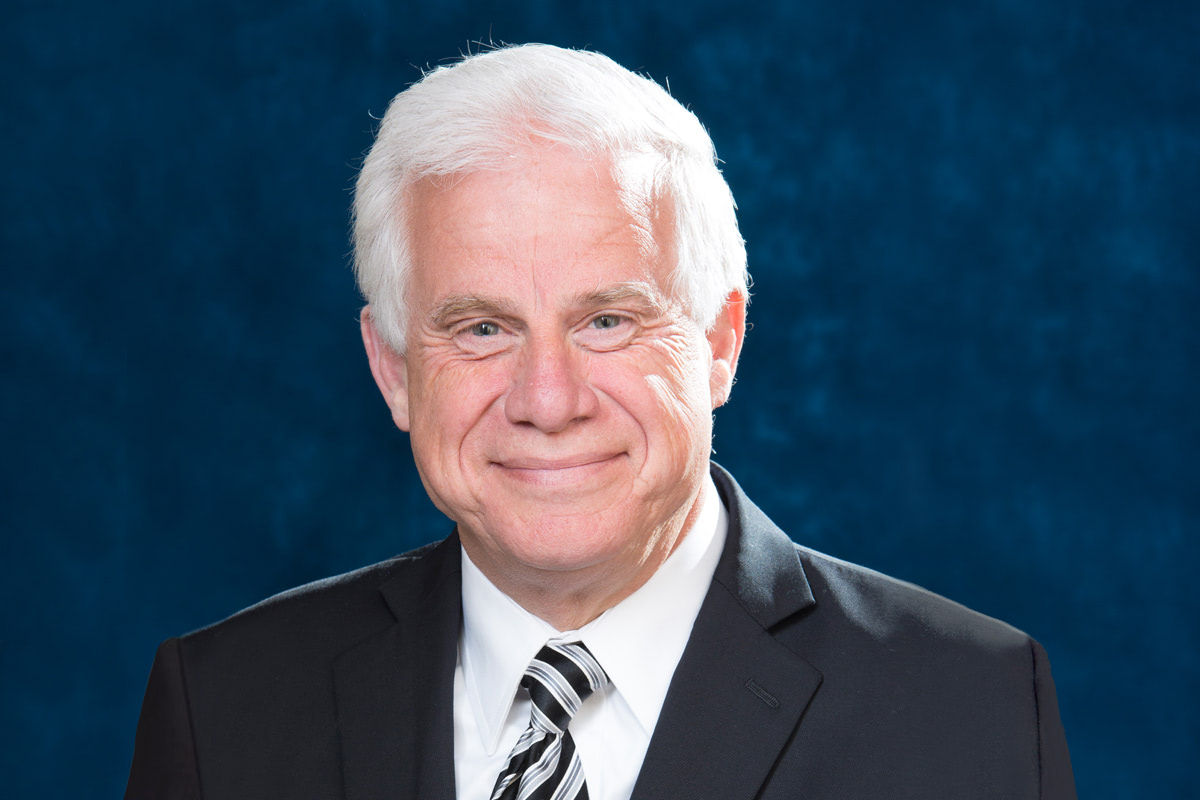Meet the New Dean for the School of Pharmacy
Dr. Naser Alsharif is ready to steer the school through the “perfect storm” by restoring a culture of academia and advocating for pharmacy as a profession.
Dr. Naser Alsharif joined LAU in February 2022 as dean of the School of Pharmacy during what he calls “the perfect storm.” He has no qualms about his move from Creighton University, Omaha, US. To those who think him “courageous” to have come to Lebanon at the most critical period in its history, he says that this was in fact the best time to be here.
With more than 28 years’ experience in teaching and research, Dr. Alsharif brings to the deanship his expertise on toxicity of polyaromatic hydrocarbons, distance education, scholarship of teaching and learning, use of technology, healthcare disparities and cultural competency, health and healing practices of people of faith, provider bias and global pharmacy education, among many others.
His focus will be on enhancing morale, supporting and increasing scholarly productivity, advancing pharmacy education by promoting a sense of belonging and pride in the profession among graduates, advocacy with key stakeholders, interprofessional collaboration, creating new job opportunities and a collaborative approach to patient care which appreciates the role pharmacy can play, and a practice that respects cross-cultural perspectives and diversity.
To start with, fostering cultural competency in healthcare and tackling provider bias are aspects that he would like to address at the School of Pharmacy and LAU.
Cultural competency, he explained, “is recognizing that culture is a very important aspect of our patients, what they believe about drugs, health and illness, that can impact their interaction with the healthcare provider.” Cultivating the students’ ability to understand and deal effectively with patients from different backgrounds is fundamental to healthcare.
More than holding lectures on the subject, Dr. Alsharif wants to embed cultural competency in the school’s curriculum and to collaborate with LAU’s Alice Ramez School of Nursing and Gilbert and Rose-Marie Chagoury School of Medicine on this topic for students and practitioners. To that end, he and colleagues from all three health schools have submitted two proposals to the President’s Intramural Funds: “Assessing and Sensitizing Health Care Providers for Cultural Sensitivity: An Interprofessional Study and Health” and “Healing Practices of People of Faith in Lebanon.”
These projects will be followed by a Phase 2 targeting healthcare providers in the Lebanese Primary Healthcare network to optimize their interactions with diverse patient populations.
As he takes the helm of the school amid the economic and financial crises, Dr. Alsharif is faced with the challenge of faculty and staff attrition, which he intends to face head on. He envisions a two-fold solution: first, transparent advocacy for salaries, benefits and retirement plans that ensure “we are doing the best we can,” and, second, showing that “we are all together in how we face these tough times.”
To safeguard the school’s human capital, he intends to restore “a culture of academia,” one of hope and trust, by nurturing a sense of belonging to the school and the larger institution, leading by example and injecting positivity to motivate and elevate the morale of faculty, students and staff.
The upside of the disruptions brought about by COVID-19 and the challenges in the country is that academic institutions and the pharmaceutical industry itself have had to reassess how they operate and be agile and innovative in their expenditures and operations in order to survive, he said.
“We cannot keep thinking ‘business as usual’ in the way we work, spend and allocate money, and become sustainable,” noted Dr. Alsharif, “all the more so here in Lebanon, considering the ongoing financial and economic crises.”
In that regard, the School of Pharmacy has a role to play, both at the academic and professional levels, to implement cost-saving plans, while ensuring a high-quality education that equips pharmacy students with the necessary knowledge, skills and attitudes as part of an interprofessional healthcare team, which impact positive patient outcomes and cost-effective services.
Dr. Alsharif also called for broadening the view of pharmacy as a profession. Drawing from his experience in the United States, and familiarity with global trends, he affirmed that pharmacists have grown more involved in all aspects of healthcare clinical services, wellness coaching and public health services.
To give LAU pharmacy students the edge in a competitive market, the school will explore curriculum reform that can provide new job opportunities for graduates, enhance students’ entrepreneurial skills, as well as leadership and advocacy. It will work closely with the local pharmaceutical industry and other stakeholders to identify the industry’s needs and make the necessary changes at the level of the curriculum.
A key aspect of all of the above is to advocate with all stakeholders for pharmacy in the inpatient and outpatient settings as a profession and not as an auxiliary service.
This vision is shared with the Lebanese Order of Pharmacists, under the leadership of alumnus Dr. Joe Salloum (BS ’03), who is working to ensure that pharmacists are recognized as integral to the medical team.
Dr. Alsharif and his colleagues at the school, backed by the higher administration, are also pursuing the establishment of a bioequivalence lab to support the local pharmaceutical industries and restore Lebanon’s status as a producer and exporter of high-quality drugs.
Currently, he said, “the local pharmaceutical companies are compelled to send out their drugs for testing abroad in the absence of a local bioequivalence lab – where their generic drugs can be tested for safety and effectiveness.” The proposed lab would also incorporate a pharmacogenomic unit, where pharmacogenetic studies can be conducted to provide a safer and effective treatment for patients in the country and region.
Dr. Alsharif has no doubt that his vision for the school can be realized with the support of its faculty and staff, the president, provost, school deans and colleagues across campus, who have been most welcoming, as well as the university’s strong commitment to make a difference.
